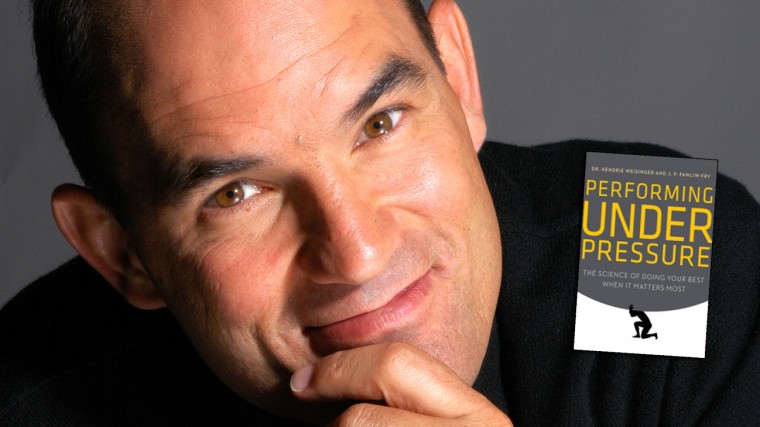Nobody performs better under pressure. Regardless of the task, pressure ruthlessly diminishes our judgment, decision-making, attention, dexterity, and performance in every professional and personal arena. In his new book, Performing Under Pressure, Leadership and Performance Expert Dr. JP Pawliw-Fry (with co-writer Dr. Hendrie Weisinger) introduces people to the concept of pressure management, offering empirically tested short term and long term solutions to help us overcome the debilitating effects of pressure. The Pittsburgh Post-Gazette had a chance to speak with Dr. Pawliw-Fry, below:
Ever formed a snowball, thrown it across the street and hit a telephone pole dead on?
If you did, you probably turned to a companion who missed the whole thing and tried to re-create the throw. That second throw, odds are, missed the pole by a yard.
That second throw is an example of how pressure, even at a minuscule level, diminishes performance.
It turns out there is a lot of research on performance under pressure, but that research has not trickled out to most employers, coaches or parents. Particularly those who yell at their kids from the sidelines.
“One of the central ideas of how to handle pressure is trust. That trust is so important,” Dr. J.P. Pawliw-Fry said.
Dr. Pawliw-Fry, co-author of the new Crown Business book “Performing Under Pressure: The Science of Doing Your Best When It Matters Most,” said as one gains technical ability, there is a level of knowing one can do an activity or perform a task.
For instance, a top notch skier can expertly navigate a mountain with ease, a mastery that brings a sense of euphoria when the skis carve perfect turns into the snow. It’s that same feeling of firing off a basketball shot from the three-point line, just knowing it will go in.
But then put a timer on and add a sense that either of those activities are central to winning an important event and watch form fall apart.
It turns out, that happens for all of us. The paradox of pressure is that at the moment that we need our skills to be at their very best is when those skills are diminished the most.
And the worst thing a coach or employer can do is to stress the magnitude of why an athlete’s, or a worker’s, performance needs to be at its best.
The truth is, Dr. Pawliw-Fry said, that in most pressure situations, you will fail. The swing on a pitch in the ninth inning will be a strike, the three-point shot will be an air ball, and the skier will take the turn too hard and too wide.
The trick, he said, is how we respond. If someone ruminates over the failure, the next time they try they will fail as well. But if they trust themselves and, as the old Nike slogan says, “Just do it,” they can succeed.
Coaches who do their coaching in practice and then at game time say, “You’ve got this,” are more reassuring than those who scream “get your hands up” to their point guard. And players who play to be their best do better in pressure situations than those who are afraid to lose.
The same goes for business. In a clutch situation, the best thing a leader can do is turn to the team and reassure them they can do their jobs.

